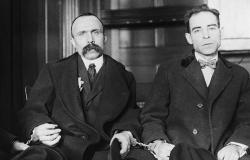Paccording to a recently published McKinsey study, one hundred countries from the region of Central and Eastern Europe entered the fast left lane in terms of productivity growth, i.e. the value of production per employee. We can proudly say that these are sprinters who have the ability to compete with the rich and powerful sometime in the future. On the contrary, those countries that “drive” in the right, slow lane, the land that fell away from them permanently moves away.
What separates sprinters from sloths? The rate of growth of labor productivity, long-term high rate of investment between 20 and 40 percent of GDP, sleep investment in urbanization, growing productivity of services and industry involved in international trade.
And how is our country doing? You won’t find it in ebku sprinter. But Poland does. you won’t even be in other categories. Maybe we are a very small and unattractive country or we just wanted to avoid embarrassment. It’s not, but according to the changed criteria, it’s too late to write. However, from the point of view of the coronavirus, we, along with Hungary, Taiwan and Tunisia, were part of the middle stream of rapidly developing economies. In the era of the “perfect boom”, when several eyes swept through the economy in quick succession, we put it straight from the slow lane to the idle lane. And when you go, it takes strength, power and a quick reaction to get back on track.
Tenjura due to better health, GDP will be lower than before covid. Economists are tougher
12/04/2024 ▪ 5 minutes the
He sent a warning to drive faster. Since 2019, the average growth in value added per capita (so-called productivity) has slowed from less than two percent to less than one percent. The price competitiveness of our imports changed by the real exchange rate deflated by labor costs has decreased by a quarter since 2017 due to exchange rate fluctuations and mainly rising labor costs. Compared to Poland, price competitiveness only decreased by 6.5 percent, Germany by 1.4 percent, and in the case of Hungary, it remained unchanged. And that’s not far from it. Energy costs for companies in the Czech Republic grew by 3.5 times compared to 2017, similar to Hungary and Austria. Only in Croatia, Germany and Slovakia did the vraznji – na ty- and ptinsobek go up. In the rest of Europe, they grew much more slowly. In the US, energy prices fell by only 17 percent during the same period. About nzk units of percent.
more than ever, the Czech Republic (and the entire EU) needs an increase in added value or productivity. It is perhaps the only guaranteed recipe for sustainable growth even in the face of a shrinking population, the necessary economic and energy transformation, the message of security and resilience of supply chains and, finally, protection against further falling prices.






